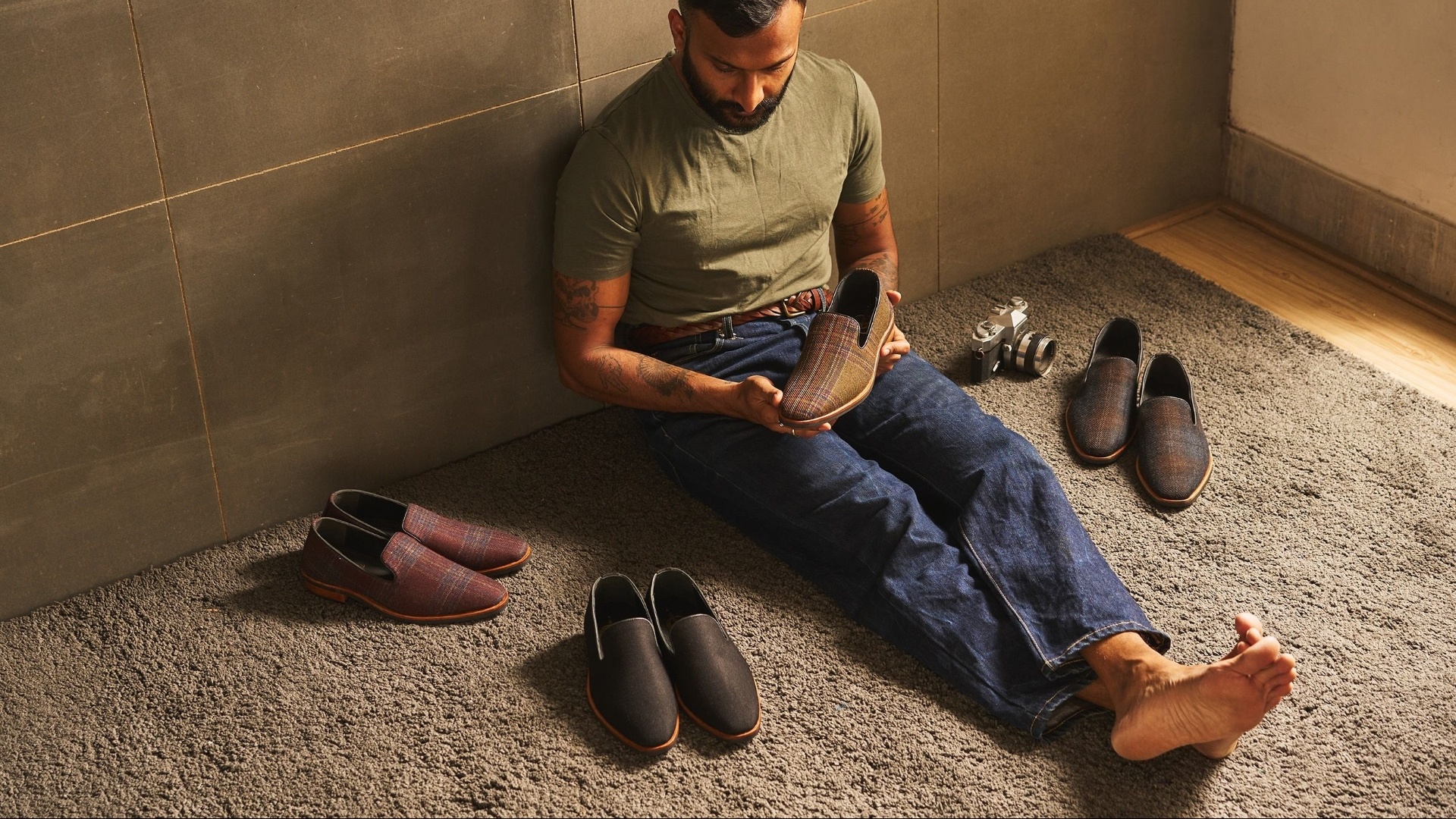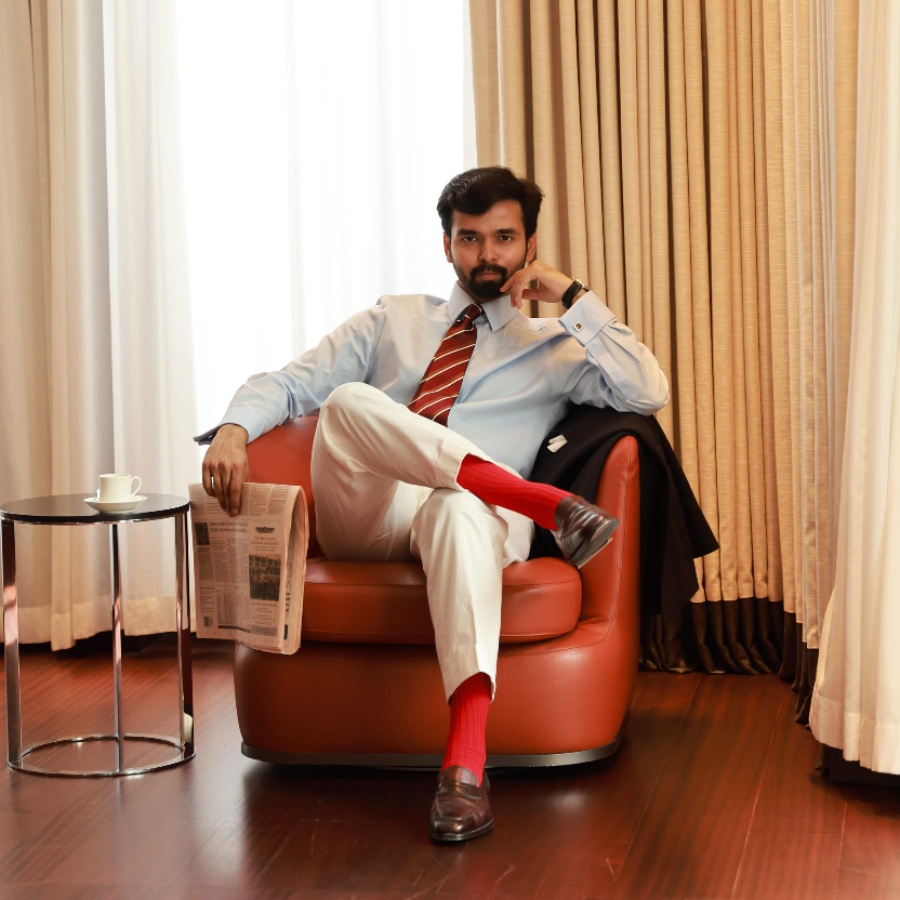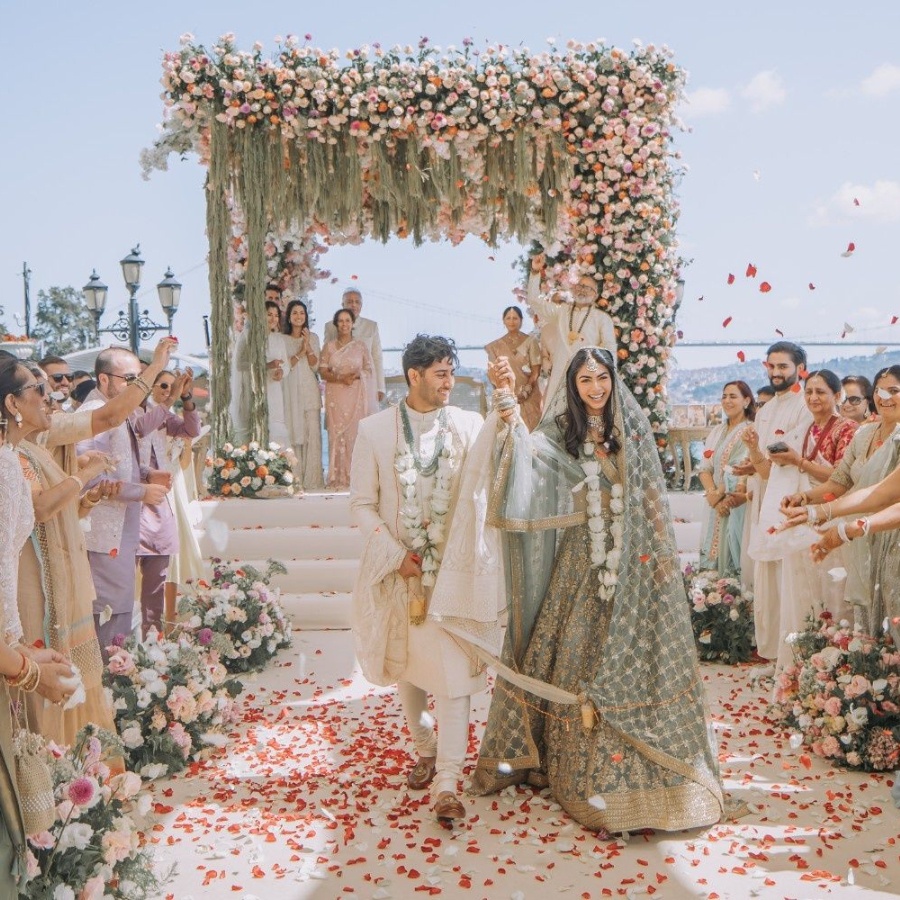The austere offices of law firm Krishna & Saurastri, located in south Mumbai, aren’t where you’d expect to meet a clotheshorse, especially one with his own handmade shoe label. But here I am on a rainy afternoon with Rishabh Saurastri, a partner at the firm and also co-founder of Nomiri.
Dressed in a mustard-yellow sports jacket, off-white pleated trousers, and dark brown loafers from his own brand, the patent lawyer stands out—like Garamond Italic among Couriers.
Saurastri, 34, and Rishi Hankare, a third-generation cordwainer, launched Nomiri in late 2024. The brand offers impossibly elegant shoes—including hand-welted wholecut Oxfords, derbies, and twisted-strap loafers—across different lines. Prices start at ₹35,000 for made-to-order pairs and go well north of ₹1.3 lakh for bespoke. Some pairs can take up to six months to make.
They source leather from certified tanneries in Europe and Japan that also supply “the likes of Hermès”, and the shoes are crafted by specially trained staff at Hankare’s facility near Pune. “Nothing we use is from India; we just don’t have that kind of quality here. Leather, glues, threads, linings, inner material...,” says Saurastri. He describes Nomiri’s aesthetic as a blend of French and Italian with a Japanese vibe. The aspiration? To make shoes as good as the best Italian or Japanese makers. “Someone like Yohei Fukuda—that’s the benchmark,” he says, referring to the shoemaker behind Japan’s quiet rise as a bespoke powerhouse.
Nomiri isn’t Saurastri’s first brush with leather. About a decade ago, he started a small-batch leather bag company but gave up after suppliers failed to meet his standards. In 2019, he trained under the legendary Janne Melkersson in the town of Hara, Sweden. That rekindled his desire to work with leather and eventually led to Nomiri, which hopes to ride the fair winds social media often grants artisanal lifestyle brands that live up to their promise.
Indian men may be buying more Mercedes-Benz automobiles and Swiss watches and sipping fine tequila, but are they as particular about their footwear? Especially if it can’t be touched, felt, or seen when it’s online.
Saurastri says the next year will see Nomiri circumvent the obvious disadvantages of selling luxury goods online through trunk shows and collaborations. The early resonance, he claims, has made him optimistic. He believes there are still pockets, especially up north, where men love to dress well and are willing to spend on it. “That’s my customer—he’s heard good things about your work, he likes what you do. He won’t waste time asking for discounts.”
Saurastri has already made several bespoke pairs for clients from Mumbai, Hyderabad, and West Bengal, and says he’ll be happy selling around 70 hand-welted pairs a year once things settle. “That’s a conservative estimate, but I’ll happily take it.”
Down south, in Hyderabad, Tarun Oblum, another aesthete, is putting into play the lessons he’s learned over four-odd years in shoemaking. He’s moving from a smaller atelier to a three-storey building in Jubilee Hills, soon to be known as The Townhouse.









